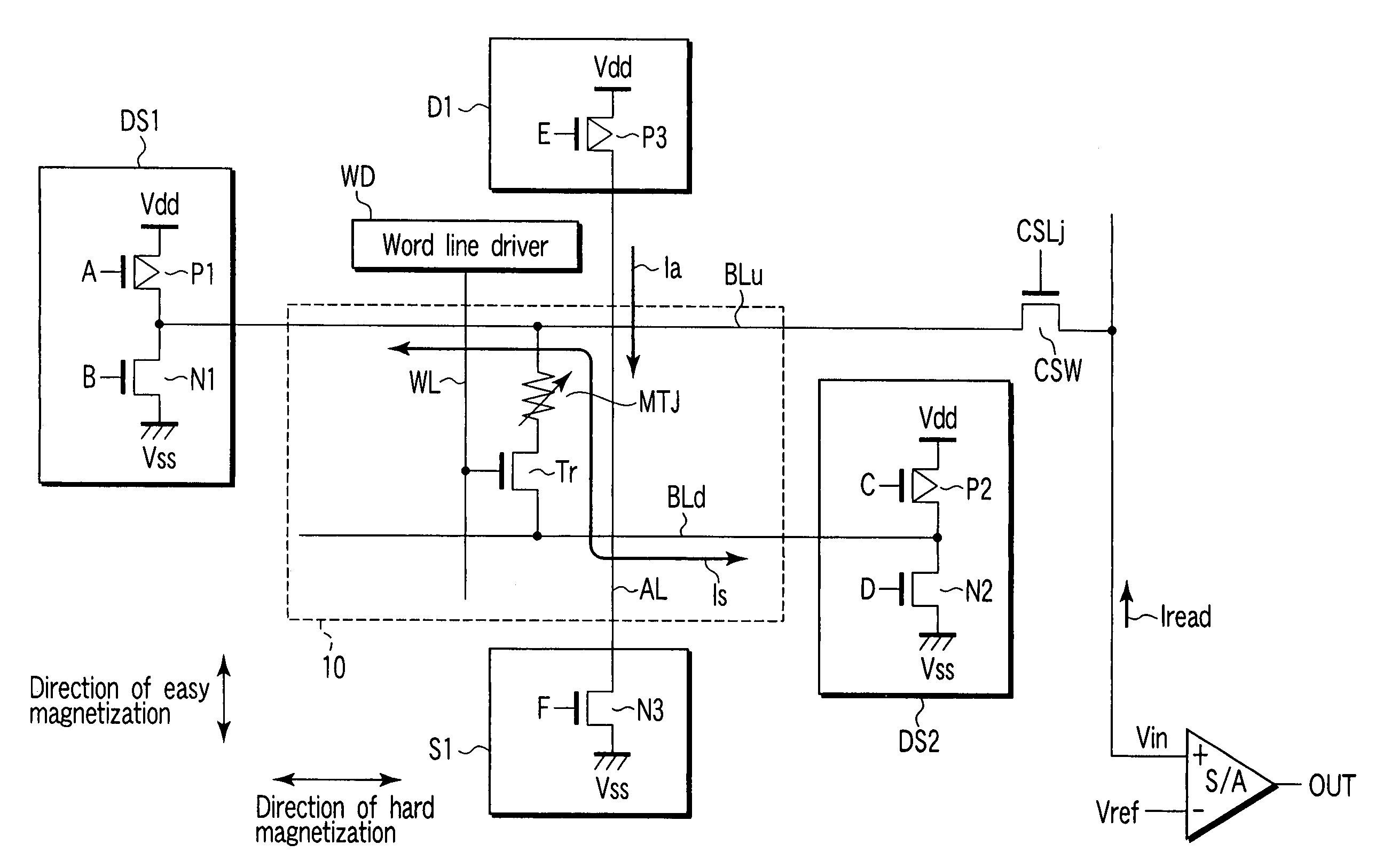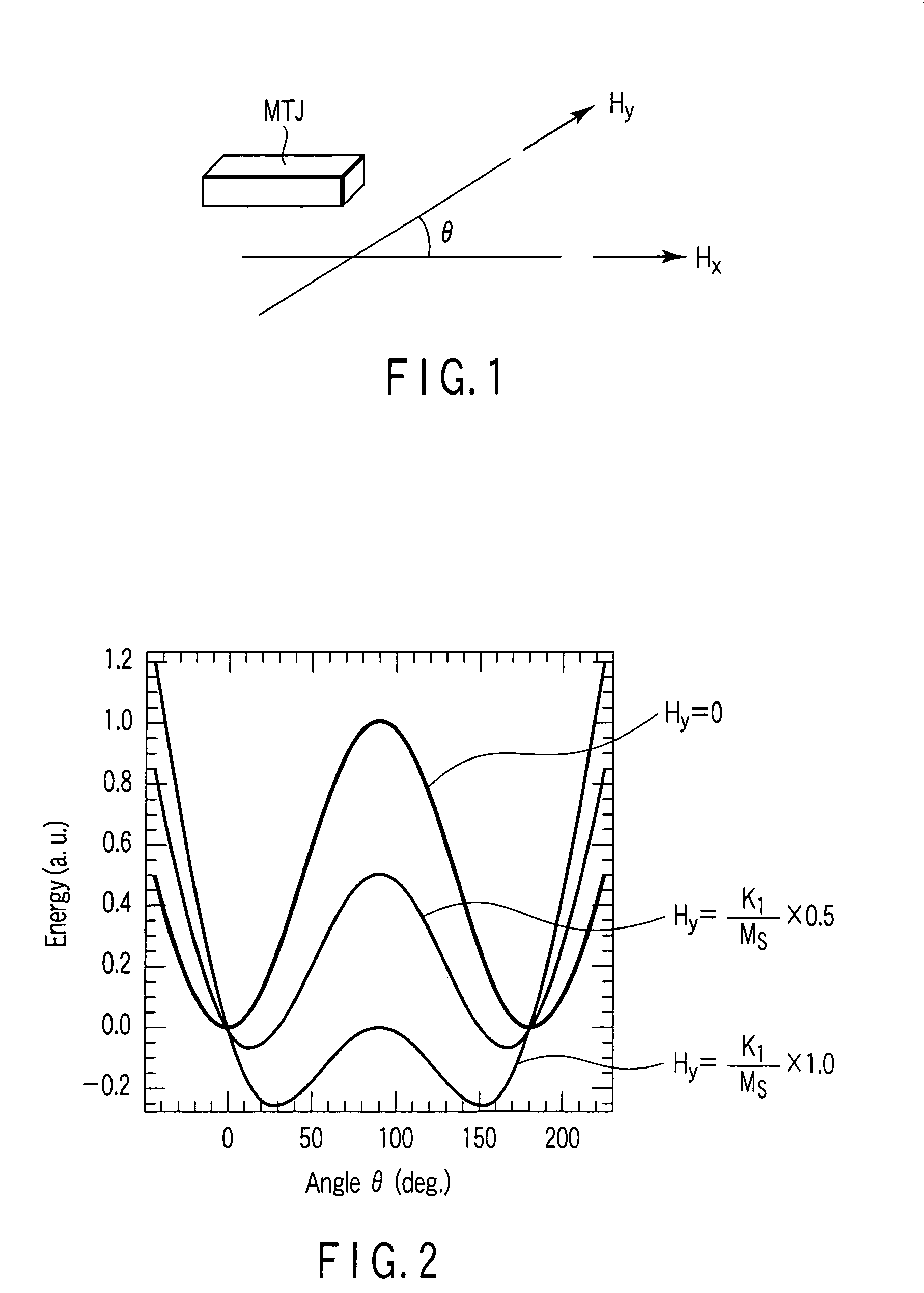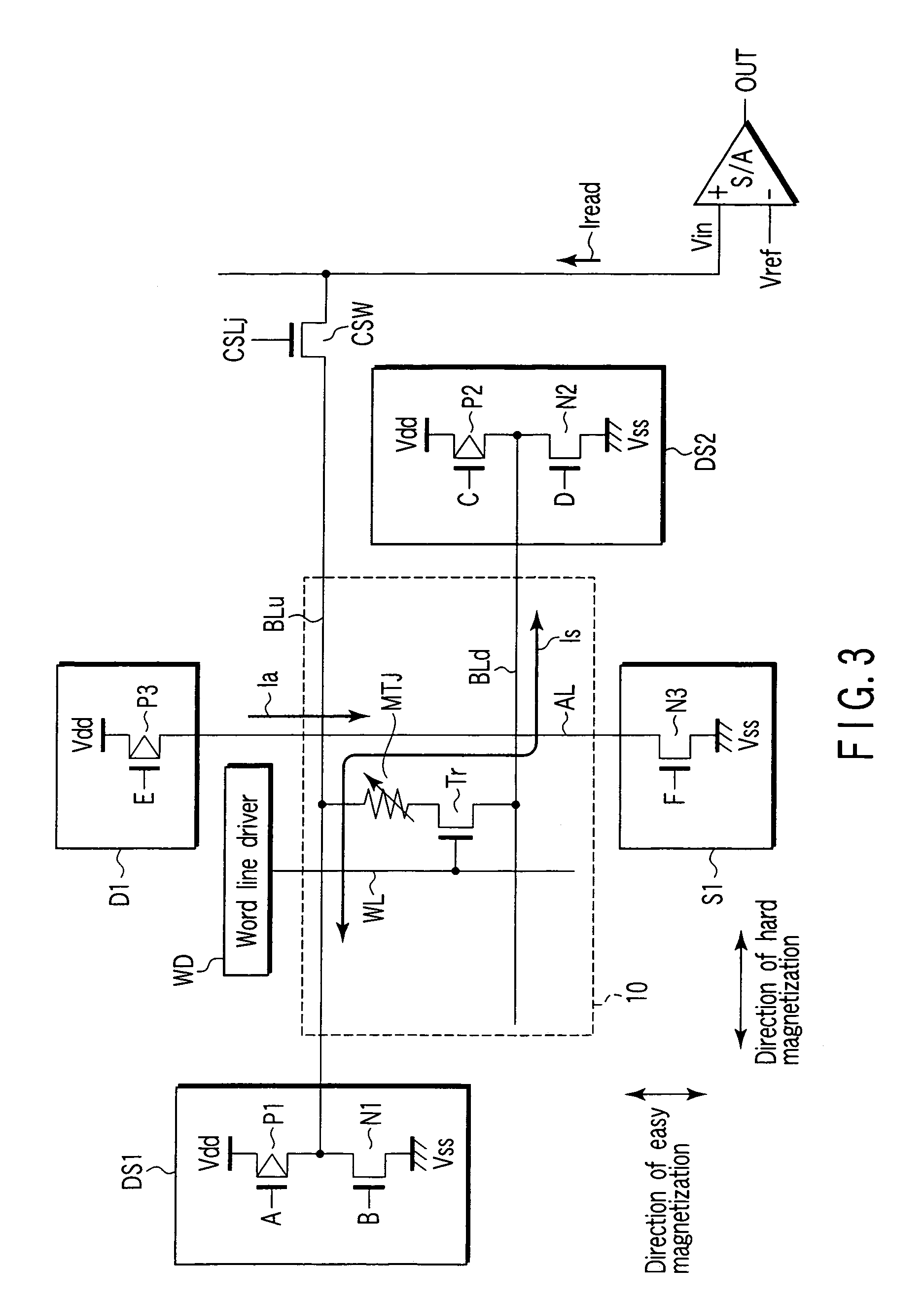Spin-injection magnetic random access memory
a magnetic random access and magnetic technology, applied in information storage, static storage, digital storage, etc., can solve the problems of increasing power consumption at a write time, memory capacity cannot be enlarged, and the cell size cannot be reduced to be less than that of a dynamic random access memory (dram)
- Summary
- Abstract
- Description
- Claims
- Application Information
AI Technical Summary
Benefits of technology
Problems solved by technology
Method used
Image
Examples
embodiment
2. EMBODIMENT
[0058]Next, there will be described several embodiments supposed to be the best.
first embodiment
(1) First Embodiment
[0059]A first embodiment is an example in which a path of a spin-injection current is completely separated from that of an assist current.
[0060]A. Circuit Diagram
[0061]FIG. 3 is a circuit diagram showing a main part of a magnetic random access memory in a first embodiment.
[0062]A magnetoresistive element MTJ constitutes a part of a memory cell array 10.
[0063]One end of the magnetoresistive element MTJ is connected to an upper bit line BLu, and the other end thereof is connected to a lower bit line BLd via an N-channel MOS transistor Tr as a selection switch. Both of the upper bit line BLu and the lower bit line BLd extend in the same direction which is a direction of a hard magnetization (column direction) of the magnetoresistive element MTJ in the present example.
[0064]One end of the upper bit line BLu is connected to a CMOS type driver / sinker DS1. The driver / sinker DS1 is constituted of a P-channel MOS transistor P1 and an N-channel MOS transistor N1 connected ...
second embodiment
(2) Second Embodiment
[0106]A second embodiment is an example in which a path of a spin-injection current partially agrees with that of an assist current.
[0107]A. Circuit Diagram
[0108]FIG. 6 is a circuit diagram showing a first example of a main part of a magnetic random access memory in a second embodiment.
[0109]A magnetoresistive element MTJ constitutes a part of a memory cell array 10.
[0110]One end of the magnetoresistive element MTJ is connected to an upper bit line BLu / write assist line AL, and the other end thereof is connected to a lower bit line BLd via an N-channel MOS transistor Tr as a selection switch.
[0111]Both of the upper bit line BLu / write assist line AL and the lower bit line BLd extend in the same direction which is a direction of an easy magnetization (column direction) of the magnetoresistive element MTJ in the present example.
[0112]One end of the upper bit line BLu / write assist line AL is connected to CMOS type drivers / sinkers DS1 and DS3.
[0113]The driver / sinker ...
PUM
 Login to View More
Login to View More Abstract
Description
Claims
Application Information
 Login to View More
Login to View More - R&D
- Intellectual Property
- Life Sciences
- Materials
- Tech Scout
- Unparalleled Data Quality
- Higher Quality Content
- 60% Fewer Hallucinations
Browse by: Latest US Patents, China's latest patents, Technical Efficacy Thesaurus, Application Domain, Technology Topic, Popular Technical Reports.
© 2025 PatSnap. All rights reserved.Legal|Privacy policy|Modern Slavery Act Transparency Statement|Sitemap|About US| Contact US: help@patsnap.com



